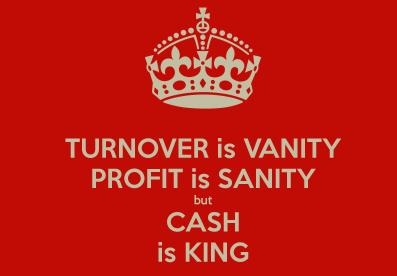By Patrick Cahillane – Life, Executive & Business Coach with One Source International Coaching & Training and Founder of The One Source Business Development Network

As a small business owner, managing cash flow and budgeting effectively is essential for success. Cash flow refers to the movement of money in and out of your business, while budgeting involves creating a plan for how you will spend and allocate your resources. Here are some tips to help you manage cash flow and budgeting effectively:
- Track your cash flow regularly: Monitoring your cash flow regularly is critical. It helps you to understand your business’s financial health and make informed decisions about spending and investment. You can use accounting software or hire a professional to help you keep track of your cash flow.
- Forecast cash flow: Forecasting your cash flow helps you plan for the future and avoid any financial surprises. It also helps you identify potential cash flow gaps, giving you enough time to find solutions. You can use financial models to project your cash flow and make informed decisions.
- Plan your budget: Creating a budget helps you identify your expenses and revenue, providing a clear picture of your business’s financial health. A budget also helps you identify any unnecessary expenses and allocate resources effectively.
- Prioritize expenses: Not all expenses are equal, and some are more important than others. It’s essential to prioritize expenses, focusing on the most critical ones first. This way, you can avoid overspending and maximize your resources.
- Manage inventory: Managing inventory is critical to cash flow management. Inventory management helps you avoid overstocking, which ties up cash, and understocking, which leads to lost sales. You can use inventory management software to help you track inventory levels and optimize your ordering.
- Monitor and control expenses: Keeping an eye on your expenses is crucial for cash flow management. Identify areas where you can cut costs, negotiate better terms with suppliers, and reduce unnecessary expenses. This way, you can maximize your resources and avoid overspending.
- Have an emergency fund: Emergencies can arise at any time, and having an emergency fund is critical. It helps you cover unexpected expenses and keeps your business afloat during challenging times. You can start by setting aside a portion of your revenue each month until you have enough saved for emergencies.
Always remember, managing cash flow and budgeting effectively is essential for small business success. By following these tips, you can ensure that your business is financially healthy, make informed decisions, and maximize your resources. Regular monitoring, forecasting, and prioritizing expenses are key to successful cash flow management and budgeting.
